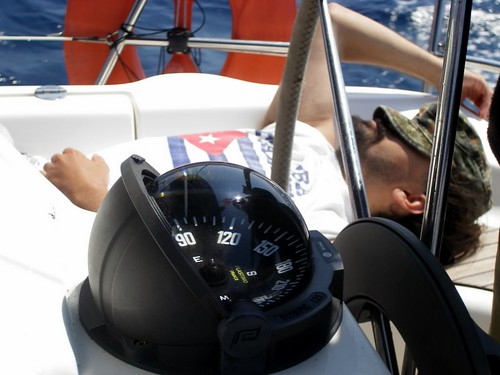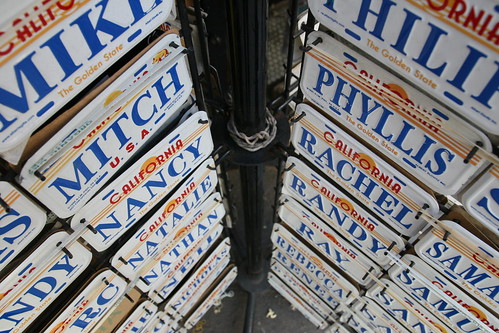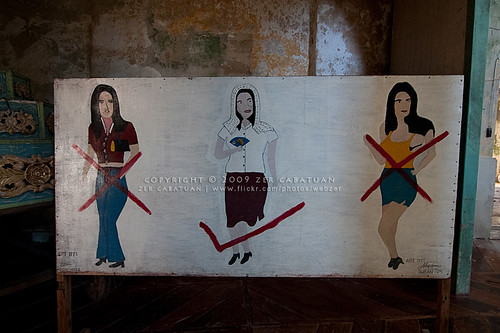4th Sunday in Ordinary Time (B)
Ite Inflammate Omnia!
Ite Inflammate Omnia!
Readings: Deuteronomy 18:15-20; Psalm 94:1-2,6-9; 1 Corinthians 7:32-35; Mark 1:21-28
Picture: cc dannebrog
Sisters and brothers, you’ve probably noticed how moths and other flying insects are attracted to bright lights. So attracted are they that even if the light is coming from a naked flame, they will still fly into it. And get burned alive. Why do they do that? I don’t know the exact scientific explanation for it. But legend has it that moths were originally made of Fire. However, over time, they got so involved in the affairs of moths, that they gradually lost touch with their Fire-nature, and all that was left of it was a tiny Spark buried deep inside them. A Spark large enough to draw them to the Fire, but far too tiny to protect their fragile moth-bodies from the heat. So that, one after another, many generations of moths flew into the Flames, and perished.
Now, the Fire was very upset by this sad state of affairs. But what could It do? The moths were just too fragile. If the Fire came too close to them from the outside, they would simply disintegrate in the heat. Finally, the Fire decided upon the only course of action open to It. The Fire transformed Itself into a moth. Not just any ordinary moth. A moth that was made of Pure Fire. A moth that could survive the heat of the Flames. The plan was for this Fire-moth to teach the others how to purify themselves. How to transform their fragile moth-bodies into Fire, from the inside out. In this way, the moths could then approach the Flames without being hurt. The plan succeeded. But only to a certain extent.
The Fire-moth did all that it was supposed to do. It gathered several other moths, and taught them the secret of Fire-transformation. It then sent out these disciples to teach the art to the rest of the moth-world, promising them that the Fire-moth would always be present to them, if only they remained true to their Fire-nature. Having done this, the Fire-moth flew back into the Flames. At first, the disciples did as they were told. But they faced stiff opposition from the others. You see, in order to be changed into Fire, a moth had to allow a part of itself–the part that was opposed to Fire–to die. And, of course, not all moths wanted to die.
Sadly, in reaction to this opposition, the disciples of the Fire-moth soon gave up trying to teach the art of Fire-transformation to others. Instead, to protect themselves, they set up a very strict boundary between them and the other moths. Between the World of Fire and the world of moths. So that, gradually, the art of Fire-transformation was all but lost. All except for a very small group of disciples, who refused to remain within the boundaries. These disciples continued bravely to go out into the moth-world, and to share the art of fire-transformation with others. So that, even today, if you are lucky, you may witness an amazing sight. You may see a moth flying into a naked flame without itself being burnt alive.
Sisters and brothers, you’ve probably not heard this legend before. Since I made it up. But it does mirror the story that our Mass readings are telling us today. In the first reading, Moses shares with the people of Israel God’s response to a complaint that they had voiced earlier. Like the moths in the legend, the Israelites were attracted to the presence of God. But they were also very much frightened by God’s awesome power. So that each of them had said to Moses: Do not let me hear again the voice of the Lord my God, nor look any longer on this great fire, or I shall die. In response, God promises to send them a prophet. Someone who is able to do what Moses had been doing. Someone who could act as an intermediary between them and God. I will put my words into his mouth, God says, and he shall tell them all I command him.
This promise made by God in the first reading finds its fulfilment in the person and actions of Jesus in the gospel. But Jesus is not just another Moses. He is not just another prophet. The gospel tells us that his teaching made a deep impression on his listeners because he taught them with authority. Unlike other prophets, Jesus didn’t just repeat words that he had heard from someone else. Rather, Jesus is himself the Word that became flesh (John 1:14). He came among us not just to teach us, but also to transform us. He is the Fire that became a moth, in order to purify us of everything that is opposed to Fire. This is the very thing that we find him doing in the gospel. In the synagogue, Jesus drives out the unclean spirit, and makes the man clean again.
And what Jesus does for the man in the synagogue, he does also for each of us gathered here today. In the waters of our Baptism and through the oil of our Confirmation, in the confined space of the Confessional, and at the open table of this Eucharist, Jesus purifies us and transforms us. Jesus burns away everything that is not of God, so that we can approach the Throne of Grace with boldness (Hb 4:16). With a confidence rooted not in our own goodness, but in the love of the One who laid down his life for us on the Cross. But that is not all. Like the moths of the legend, we are transformed by Christ not just for ourselves. We are changed in order to be commissioned. To be sent out to share the mystery of transformation with others.
And, if we are truly to live up to our call. If we are to be truly serious about sharing the secret of transformation with others. Then we need to resist a very seductive temptation. A temptation to which even the great St. Paul himself appears to have succumbed. In the second reading, Paul advises those who are unmarried to stay that way, so that they can give their undivided attention to the Lord. Of course, Paul offers this piece of advice for the good of his readers. He wishes to help them to avoid having to divide their attention between the world’s affairs and the affairs of the Lord. But that’s precisely the problem isn’t it? In making a strict distinction between these two spheres, isn’t Paul forgetting that the reason why Christ came among us, the reason why we have all been changed, is precisely so that we might be able to purify and to transform the affairs of the world into the affairs of the Lord? And how are we to do this if all of us were simply to separate ourselves from the world?
Even a religious vocation like my own is not meant for its own sake. Although, through his or her vows, a religious does withdraw to some degree from the affairs of the world, these vows are lived as a reminder, to those who remain immersed in the affairs of the world, of their calling to transform all that is worldly into the things of God. And we can do this only to the extent that we are willing to live the tension that Paul seems to be trying to help his readers to avoid. Like the transformed moths of our legend, we are called to remain true to the Fire within us, even as we continue to immerse ourselves in the affairs of the world, seeking to transform them into the Kingdom of God.
I'm reminded of another legend, a Jesuit one, that tells of how, when St. Ignatius of Loyola was sending St. Francis Xavier out to preach the gospel far away in the Indies, he left his friend with these Latin words: ite inflammate omnia. Go, set the world on fire!
Sisters and brothers, how are we being called to do the same today?




